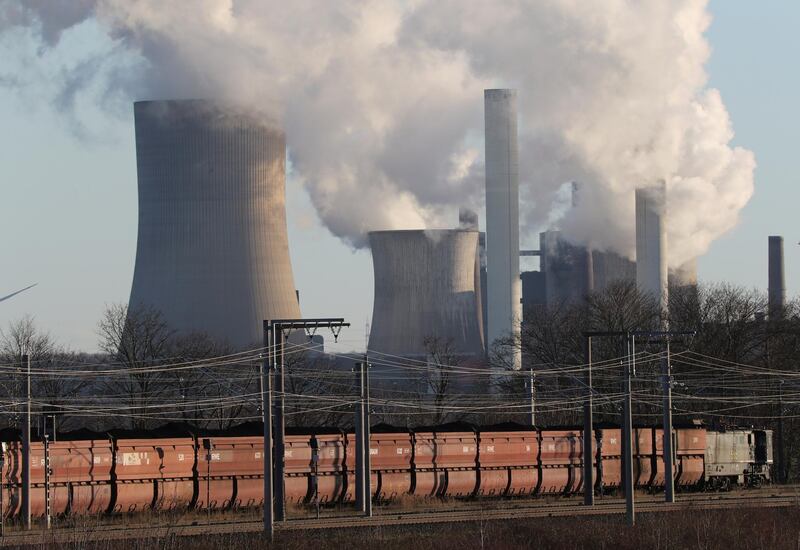Germany will pay 40 billion euros (Dh163.58bn) in compensation to the country’s main coal-mining regions as it attempts to phase out the toxic fossil fuel by 2038.
The shutdown plan was agreed following overnight talks between Chancellor Angela Merkel and premiers from the states of Saxony-Anhalt, Saxony, North Rhine-Westphalia and Brandenburg for German power plants using coal, which is highly polluting.
It could see coal being removed by 2035 depending on how successful the shutdown is.
“The exit from coal begins now, and it’s binding,” Environment Minister Svenja Schulze said on Thursday.
The scheme will be written into a draft law set to be presented later this month and ratified by mid-2020.
“Germany, one of the strongest and most successful industry nations in the world, is taking huge steps towards leaving the fossil fuel era,” Finance Minister Olaf Scholz told a news conference.
“These were tough negotiations,” Ms Schulze said. “But you can see the result - we are the first country that has a binding agreement to exit coal and nuclear power - and that’s an important signal internationally.”
Germany’s government will separately give 4.35 billion euros (Dh17.79bn) to operators of coal plants falling off the grid in the 2020’s.
The payouts "will be spread out over the 15 years following the shutdown" and represent an "affordable and in my view good result," Mr Scholz said.
Giant RWE, with its power stations in North Rhine-Westphalia, will take the lion's share at 2.6 billion euros (Dh10.63bn)
But the group complained that was "well below" the 3.5 billion euros (Dh14.31bn) of losses it expects.
Some 3,000 jobs are set to go at the energy firm "in the short term" and 6,000 by 2030, mostly via early retirement, RWE added.








